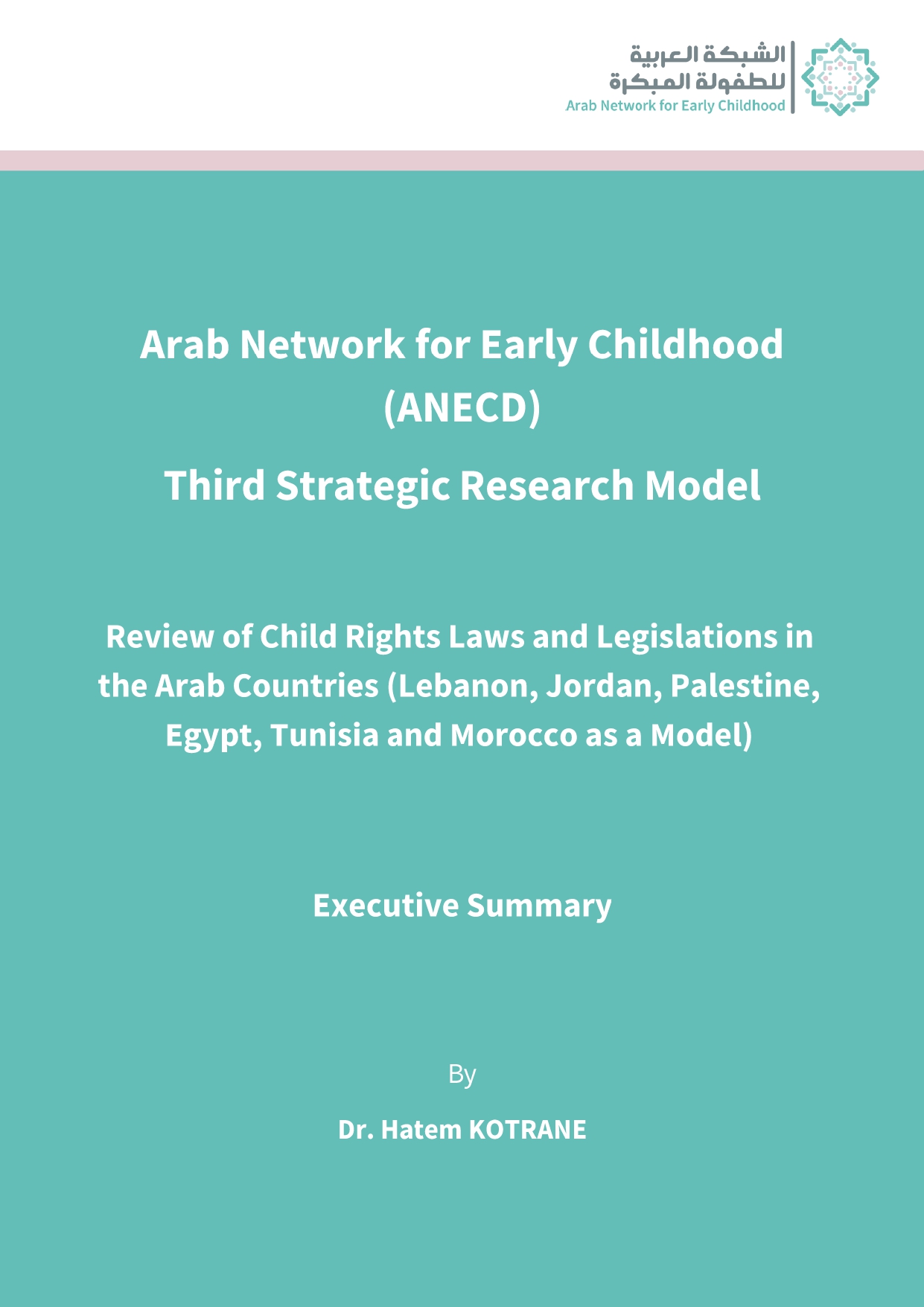We Communicate For Happy Children
 The «Arab Network» Launches Its Third Strategic Research Model on Child Rights
The «Arab Network» Launches Its Third Strategic Research Model on Child Rights 
The Arab Network for Early Childhood (ANECD) has launched its third strategic research model on reviewing child rights laws and legislation in Arab countries, by adopting six countries as models: Lebanon, Jordan, Palestine, Egypt, Tunisia, and Morocco. The study was conducted by Dr. Hatem Kotrane, a professor at the Faculty of Legal, Political, and Social Sciences in Tunisia, and a former member and Vice-chair of the Committee on the Rights of the Child (OHCHR) at the United Nations. He collaborated and coordinated with children’s rights law experts from the participating countries, as well as national early childhood networks and teams.
The study is conducted within the framework of the network’s strategic plan, which encompasses five areas of intervention: child rights, early childhood in crises, the early childhood workforce, climate change, and digital empowerment and protection. It also aligns with the commitment of Arab countries to the implementation of the Convention on the Rights of the Child. The study offers an opportunity to highlight the progress achieved in the countries directly involved, and where applicable in other Arab countries, while also addressing the primary challenges faced.
